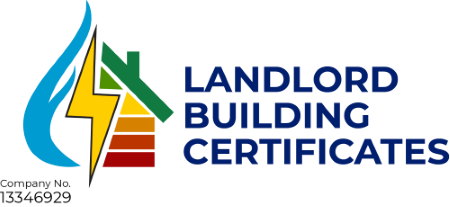Is a Fire Certificate Legally Required?
A fire certificate was once a legal requirement under the Fire Precautions Act 1971, but this changed with the introduction of the Regulatory Reform Fire Safety Order 2005. Under current laws, there is no longer a requirement for a fire certificate. Instead, the responsibility for fire safety compliance falls on the responsible person. This is typically the landlord, property owner, employer, or building manager, who must ensure that a fire risk assessment is conducted and fire precautions are in place.
Here's What We Have Covered In This Article
Who Needs a Fire Risk Assessment?
If you are responsible for a non domestic property, rental property with communal areas, or business premises, you are legally required to carry out a fire risk assessment. This applies to:
-
Landlords of houses in multiple occupation (HMOs)
-
Shops, offices, and warehouses
-
Hotels, guest houses, and bed and breakfast establishments
-
Schools, care homes, and healthcare facilities
-
Factories and industrial buildings
What Does a Fire Risk Assessment Involve?
A fire risk assessment is a structured evaluation of a building to identify fire hazards and ensure appropriate fire safety measures are in place. It must be conducted by a competent person who understands fire risk and safety regulations. The assessment should:
-
Identify sources of ignition such as electrical faults, flammable materials, or heating systems.
-
Assess who is at risk, including employees, tenants, visitors, and vulnerable individuals.
-
Evaluate escape routes, emergency exits, and fire evacuation procedures.
-
Inspect fire alarms, fire extinguishers, smoke detectors, and emergency lighting.
-
Provide recommendations for reducing fire hazards and improving fire safety measures.
Is a Fire Risk Assessment a Legal Requirement?
Yes, under the Regulatory Reform Fire Safety Order 2005, all non domestic properties and rental properties with shared spaces must have a documented fire risk assessment. If a property fails to comply with fire safety legislation, the responsible person can face serious penalties, including fines or prosecution.
Do Homeowners Need a Fire Certificate?
Private residential homeowners do not need a fire certificate. However, landlords renting out properties must ensure fire safety compliance. This includes installing smoke alarms on each floor, providing carbon monoxide detectors where required, and ensuring fire escape routes are unobstructed.
What Are the Consequences of Not Having a Fire Risk Assessment?
Failure to comply with fire safety regulations can result in:
-
Fines of up to £5,000 for minor breaches.
-
Unlimited fines or imprisonment for severe violations.
-
Enforcement notices or prohibition orders issued by the fire and rescue service.
-
Increased liability if a fire causes injury or damage.
-
Insurance claims being rejected due to non compliance.
How Often Should a Fire Risk Assessment Be Carried Out?
Fire risk assessments must be reviewed regularly to ensure compliance. The frequency depends on the type of building and risk level:
-
Annually for most businesses and rental properties.
-
Immediately if significant changes occur, such as renovations, new fire hazards, or changes in occupancy.
-
Every three to five years for low risk premises with no major alterations.
How to Arrange a Fire Risk Assessment
A competent person must conduct the fire risk assessment. This could be:
-
The property owner, employer, or building manager, if they have sufficient knowledge of fire safety.
-
A qualified fire risk assessor, particularly for high risk or complex buildings.
Book a Fire Risk Assessment Today
Stay compliant with fire safety laws and protect your property. Arrange a professional fire risk assessment to ensure your building meets legal requirements.
What Should Be Included in a Fire Safety Plan?
A fire safety plan outlines how a property meets fire safety regulations and should include:
-
Emergency evacuation procedures and designated escape routes.
-
Fire extinguisher placement and maintenance schedules.
-
Smoke and fire alarm testing records.
-
Training for staff and residents on fire prevention and emergency response.
Final Thoughts
While fire certificates are no longer issued, fire risk assessments are a legal requirement for landlords and businesses. Ensuring compliance protects lives, property, and legal standing. If you need a fire risk assessment, contact Landlord Building Certificates for expert guidance.
Landlord Building Certificates
130 Blenheim Road, Harrow HA2 7AA
07300 998666
Ensure Your Rental Property is Fire Safe
Landlords must comply with fire safety regulations. Get expert guidance on fire risk assessments and essential fire safety measures for your property.




